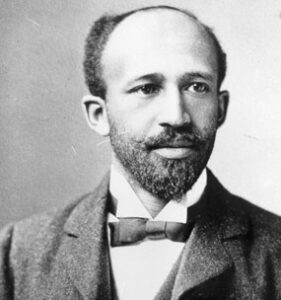DuBois on Post-Emancipation and Double-Consciousness
In these excerpts from The Souls of Black Folk, W.E.B. DuBois discussed the aftermath of emancipation in the country, and how it affected the lives of black Americans. He addressed topics like the dilemmas faced by people of color in the country, the subtle perpetuation of racism after abolition, and the controversies surrounding the assimilationist efforts of Booker T. Washington.
The dilemmas faced by people of color which he discussed were particularly thought-provoking because much of it still applies today. DuBois referred to a “double self” or a dual identity that came with being a black American. He explained how a black person must constantly struggle to “merge his double self”- being both black and American, “into a better and truer self.” Because DuBois saw the two identities as essential, the problem was how to combine the two identities without having to give up any part of either.
He also described a “double-consciousness” for Blacks, or a view of oneself that was based on how white people perceived them. I initially interpreted double consciousness as being a description of how people maintain awareness of themselves and while also being aware of themselves as “other” at all times. But after reading DuBois, I am not so sure. He stated that black Americans live in a world, “which yields him no true self-consciousness, but only lets him see himself through the revelation of the other world.” To me, this suggests that because of their unique history, black Americans must constantly view themselves through the eyes of white people, and thus are not permitted to simply experience and perceive the world through their own eyes.

Black Lives Matter protest in New York City (Getty Images)
This phenomenon was not just confined to DuBois’s time. It exists today post-slavery, post-Jim Crow, and post-Civil Rights movement. In many ways, that is what the debate about black interactions with the police is all about. While white people can regularly interact with the police without worrying about whether their life is in jeopardy, black people must constantly be aware of how they are being perceived by the police at every moment to make sure they are not being perceived as a threat.
Excerpt from The Souls of Black Folk, read by Charlotte Goodman with music by Nick Rickert:
By: Charlotte Goodman
